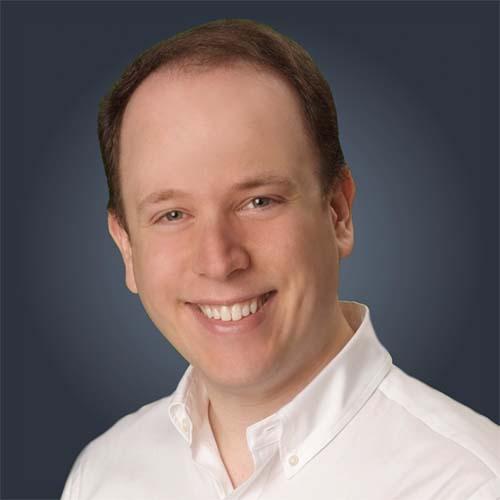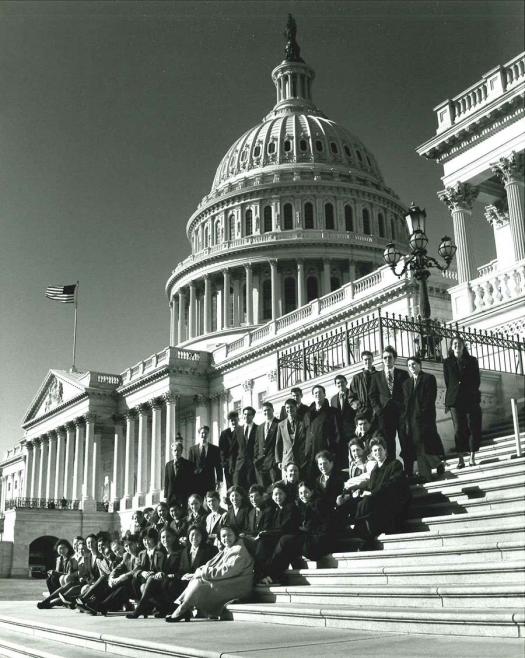Society competitions provide confidence and research direction for alums’ career
Alexander Wissner-Gross, now a scientist and entrepreneur, won 10th place at the Intel Science Talent Search 1999 and multiple awards at the Intel International Science and Engineering Fair, including a Fourth Award in Computer Science at Intel ISEF 1997 and a Second Award in Physics at Intel ISEF 1999.

What was your experience being an Intel Science Talent Search or International Science and Engineering Fair finalist like?
They were both seminal experiences in my life. The experience of preparing research for the competitions and then winning awards were formative experiences in my career. It gave me an enormous amount of confidence to pursue a research career. Being interviewed by Dr. Richard Gott, who was the head judge at Intel STS at the time, was particularly memorable. It was the first time, but would not be the last, that I had been through that type of rigorous research-intensive interview. The judging overall was a motivating experience.
Can you provide a short description of your research project and how you initially became interested in this topic/science in general?
In the late 1990’s, there was broad consensus that software as an industry had reached a plateau. The Microsoft anti-trust trial was in the news, and software was in a period of stagnation. I had always been interested in computer science, but when time came for me to select my research area of focus for my senior year of high school, I thought there might be greener pastures.
What I had found most interesting about computer science was being able to program in a perfectly controlled environment. At the time, nanotechnology was also a rising field; I had a growing interest in that because it seemed similar, except dealing with atoms instead of bits. My project was an attempt to fuse the programming of computer science with the physical world of atoms and molecules by physically programming matter. It would set my research direction for the next 15 years, and is tightly correlated to my current research and the foundation of the general umbrella of research I have pursued since, including being the subject of my undergraduate research at MIT and my thesis at Harvard.

How did doing original research and participating in events like the Intel STS or Intel ISEF affect your career trajectory?
Participating in Intel ISEF and Intel STS helped set relatively early on the direction of my research. Overall, it also gave me the confidence to pursue research. I could easily imagine if I had been less validated by the process that I might not have gone on to get a PhD. The validation from credible members of academia who I was introduced to during these competitions really gave me the confidence to pursue a research trajectory.
What are you up to now?
I received my undergraduate degree from MIT, and then completed my PhD in physics from Harvard in 2007. Since then, I’ve had a dual-career trajectory. On the one side, I’ve had an academic career. I’m a Institute Fellow and Expert in Residence at Harvard and a Research Affiliate at MIT, primarily working with machine and computer learning, as well as programmable matter. I’ve also founded two successful companies that focus on the intersection of software and the physical world.
Career/research highlights you would like to share?
A TEDTalk I gave recently on the physics of intelligence has reached more than 1.4M views. It was based on data published last year that is the culmination of the better part of a decade of research fusing physics and computer science/artificial intelligence. I’ve won more than 112 major awards, including the ones from Intel ISEF and Intel STS.
Do you have any advice for young students interested in science?
The most surprising thing I’ve learned is that focusing on important and impactful problems is no more difficult than focusing on non-impactful problems. I originally had the idea that it might be, but it’s no easier to get answers for unimportant problems. Also, if you work on important issues and are creative, the world and the economy will reach out to help you achieve solutions in unexpected ways. My advice is only focus on what is important. Don’t waste your time on smaller issues with the illusion that it will be easier to see results.
Final thoughts?
Participating in Society’s educational competitions was fantastically impactful in my own career. It really motivated me to progress in and provided me the ability to pursue impactful research. Both Intel ISEF and Intel STS are tremendous assets for our national economy.


